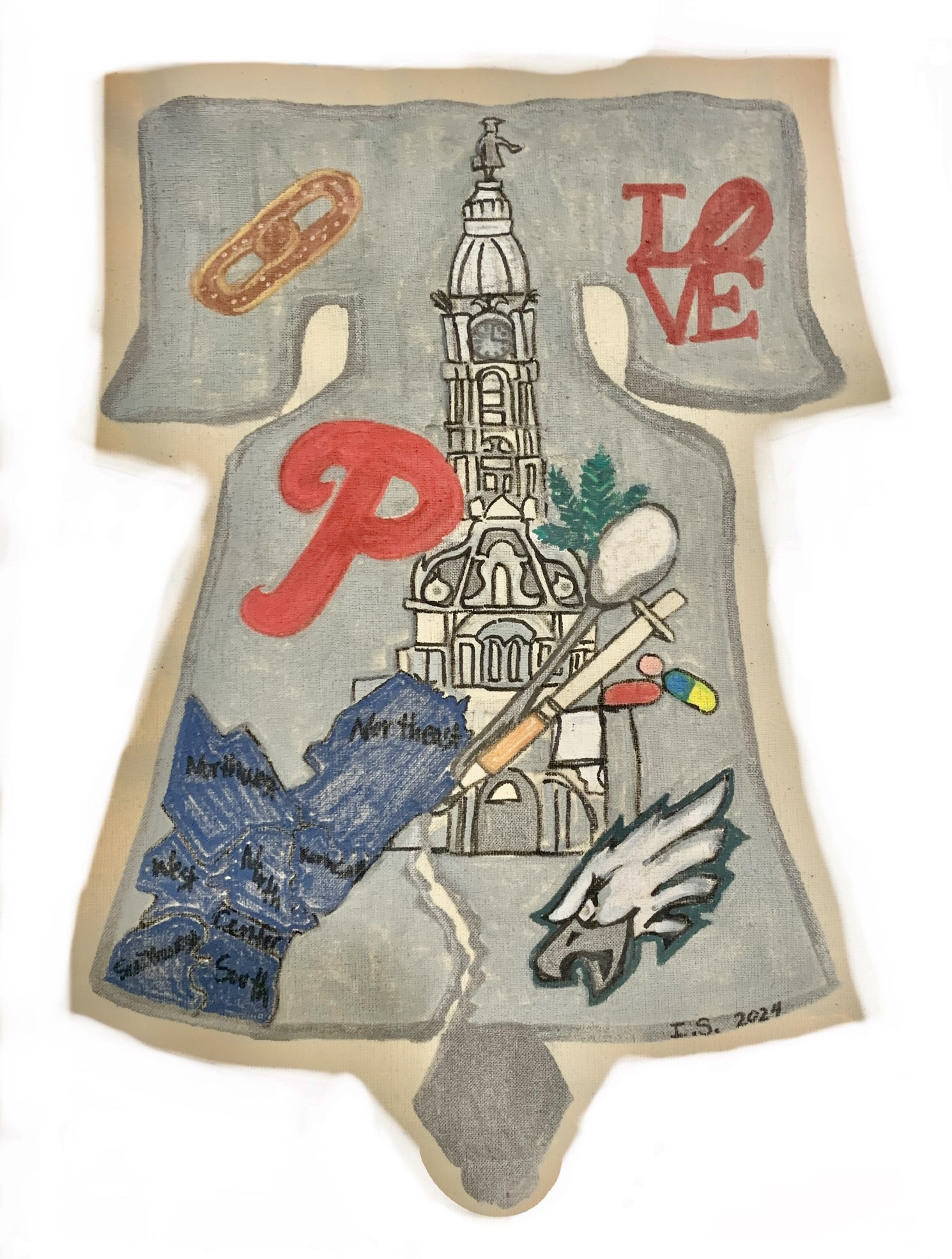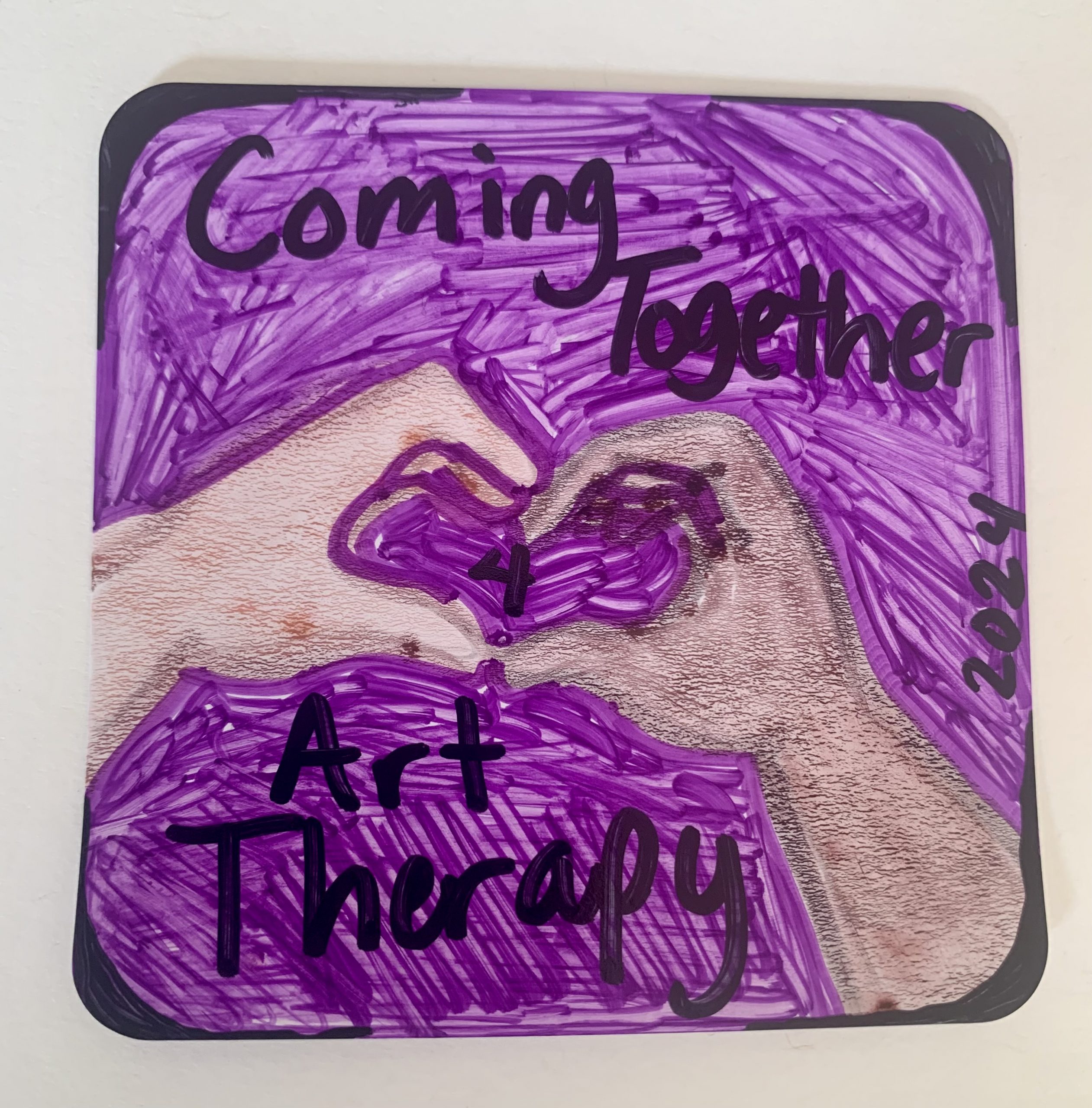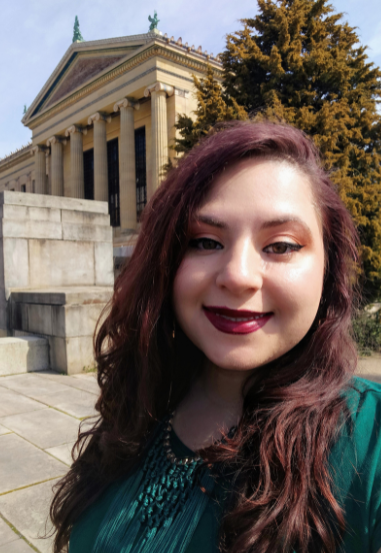June 24, 2025
The American Art Therapy Association represents a diversity of professionals, students, and organizations across the nation. We recognize and celebrate the work of our members at all levels through our Featured Member series.
What are you most excited about in your future career as an art therapist?
I am most excited for the many populations art therapy can support and seeing how the field will transcend through telehealth services. Being able to utilize art to support clients is a dream come true.
Has working with a particular client group shaped your professional focus or specialty? What have you learned from working with these clients?
How have race, diversity, and/or social justice impacted your work as an art therapy student?
Yes, race has had an impact on my art therapy education. For instance, as a beginner student in art therapy, I was interested in learning about the first person to receive a doctoral degree in art therapy, Dr. Lucile Venture, and I had the most challenging time uncovering her dissertation from 1976. However, I was pleased to find her dissertation available at this year’s AATA conference from “Project Lucile Venture”, which was shared during a group workshop. Dr. Lucile Venture emerged into the art therapy field during the civil rights movement, and it is believed that because she was a black woman, she was overlooked for years for her contributions as an Art Therapist.
Additionally, upon learning more about ableism and how art therapy can support individuals with unseen diagnoses and other disabilities that are more visible, need special care and attunement within the field. As a future art therapist and as a first-generation American with an unseen diagnosis, these lived experiences are central to the kind of compassionate, inclusive care I strive to provide. They not only inform my perspective but also inspire my commitment to social justice within therapeutic spaces.
What are your hopes for the future of the art therapy profession?
My hope for the future of the profession is that we may be able to come together across the nation in one accord and expand in the telehealth field within art therapy. I would also like to see art therapists across the nation be recognized for the extraordinary services art therapy offers across populations within the medical field.


“I had an absolutely wonderful time at this past year’s AATA conference in Pittsburgh, PA. For my first time attending an AATA Conference, I was able to reunite with art therapists I met and admired in the field. I learned about the different applications art therapy has within different populations. I was able to be a witness to the active support art therapists gave to each other, and this furthered my motivation to work towards my goals within the field. ‘This is where I belong!’ ”
— Irene Silva, Graduate Student at Cedar Crest College
What keeps you excited about the AATA community?
I enjoy supporting AATA initiatives through the Pennsylvania chapter and any other events I can attend and support. I learned about AATA through my Art Therapy Master’s degree program. I was thrilled to see this community connected with students and working professionals in the improvement of art therapy. I am so happy that there are scholarships to support the growth of education in the field. Additionally, it is truly fascinating to be a witness of the many studies going on to help diverse populations in the field of art therapy. My inspiration comes from the support AATA provides and the constant education stemming from the field.
“I would advise that art therapy is a journey full of fulfillment and the only limiting possibilities are those we give ourselves.
Upon my journey as an emerging art therapist I waited 8 years to go back to school to fulfill my dreams and although there have been many obstacles like finances, insecurities, and work life balance, every step forward in this direction has been rewarding. There are so many talented art therapists I have met along my journey and I am so proud to be a part of this group in making small differences with huge impacts.”
— Irene Silva, Graduate Student at Cedar Crest College
About Irene Silva, Graduate Student at Cedar Crest College

My name is Irene Silva, and I am a Philadelphia native. I am a first-generation American born and the first to attend college, and I am soon to complete a master’s degree. I am active in my community in providing a humanistic lens within every space I encounter, and relish in being surrounded by diversity. I believe in the power that art can offer individuals, and I believe offering art therapy is limitless in the potential a person can gain. I have a special connection working with people and caretakers who have epilepsy. Being distant from my family overseas, I understand the unique privilege I have in that I have more available resources for Epilepsy and other health concerns. I make it my mission to learn all I can within my chosen populations so that I can offer support across countries. I am actively working with the PAATA chapter to promote and support the field of art therapy and look forward to the day I can offer the same support to AATA directly. “This is where I belong, and I plan to make a difference”.
